#the lex Manilia
Text
Chapter 53: Advancing the Agenda
Just as Pompey had driven the pirate scourge from Our Sea in record time, so too was Aulus Gabinius quick to move on to the next phase of Pompey’s plan – which was to wrest command of Rome’s eastern legions away from Lucullus.
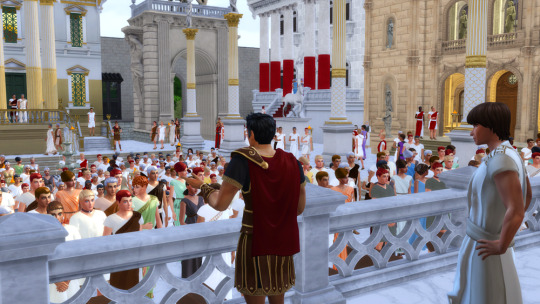
Again, Gabinius used his powers as a tribune of the plebs to summon witnesses to the rostra to testify before the popular assembly. These witnesses painted a grim picture, describing the war against King Mithridates of Pontus in frightful terms.
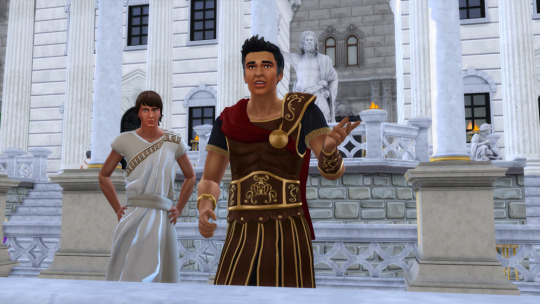
One soldier testified that some of Lucullus’ legions, unpaid for years, had simply refused to leave their winter camps. The poverty of these fighting men, of course, stood in stark contrast to the immense wealth of their aristocratic commander, who had shipped back wagonloads of booty from the campaign.
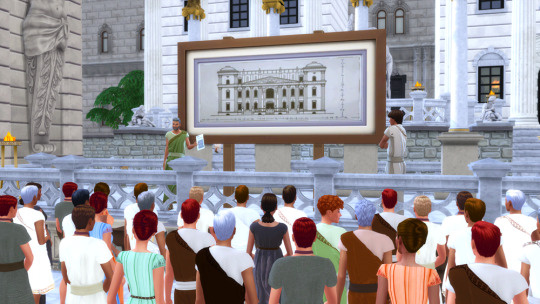
So great was Lucullus' wealth that he had bought an entire hill outside the gates of Rome and was building a great palace there. Gabinius next subpoenaed Lucullus’ architects and bade them show their extravagant drawings before the people. As a result, the name Lucullus quickly became synonymous with outrageous luxury and excess.
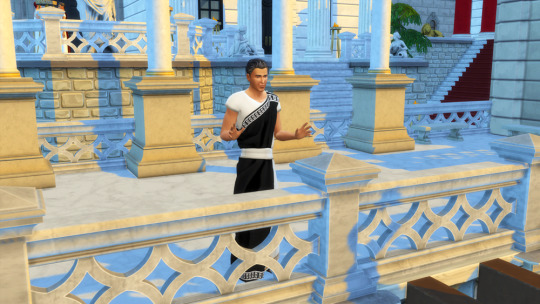
In December, Gabinius’ term as tribune ended. Yet he was replaced by yet another of Pompey’s creatures, Caius Manilius, who wasted no time in furthering his master’s interests. Manilius immediately proposed a law granting command of the war against Mithridates to Pompey – as well as the governance of the provinces of Asia, Cilicia and Bithynia.

Any hope Cicero might have held to remain neutral on the issue vanished when Gabinius came to call, bearing a message from Pompey. The general asked Cicero to support the lex Manilia in all its provisions – an action that would place an even larger target on his back when it came to the aristocratic boni, or “good men.”
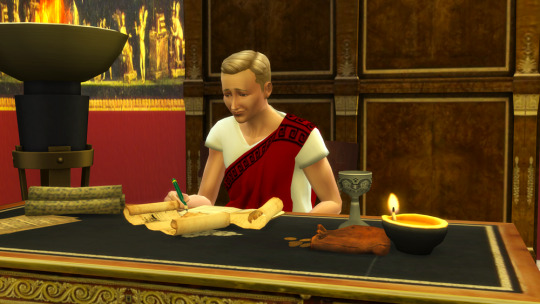
Unfortunately, Cicero had little choice but to comply. He worked on his speech for days, carefully crafting each word. Since it would be his first truly political speech from the rostra, it would be crucial to make a good showing – despite his personal feelings.
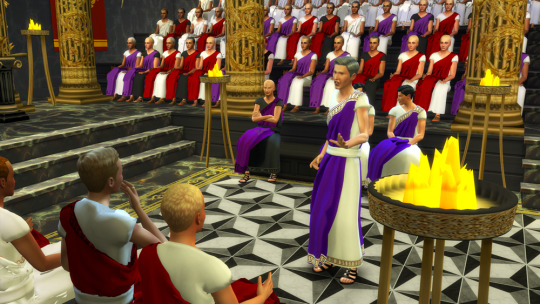
While Catulus and Hortensius spoke passionately against the measure in the senate – even going so far as attacking Cicero himself – as patricians, they were barred from directly addressing the plebeian assembly. Yet that was of no consequence. All of Rome knew their arguments by heart, as they had not changed since their opposition of the lex Gabinia.
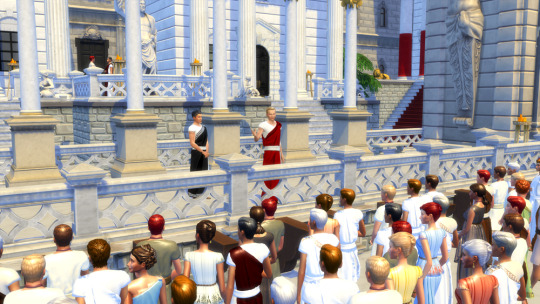
As such, Cicero couldn’t help but make sport of them when he finally addressed the people.
“So what would my boni friends say of this?” he asked, rhetorically. “As always, they would agree – if any one man were to be given the supreme command, it should be Pompey, the most able general Rome has to offer! Yet they also argue that, despite his ability, no one man should bear that responsibility! That no one merits such a command – for it is far too much power to place in the hands of any Roman!”
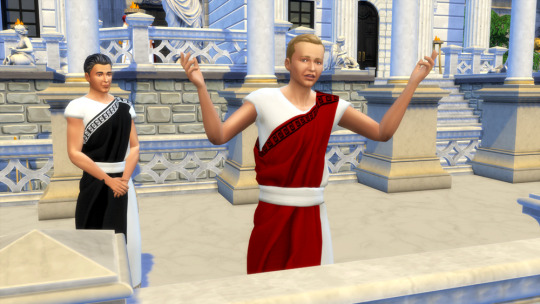
“Yet that line of thinking has already been proven dismally unwise, has it not?” Cicero continued. “For let us face the facts – had Rome listened to the bleating of these ‘good men,’ Our Sea would still be swarming with pirates, would it not? So I say, let Pompey Magnus do to King Mithridates and his allies what he has already done with the pirates. Let him wipe them from the face of the earth!”
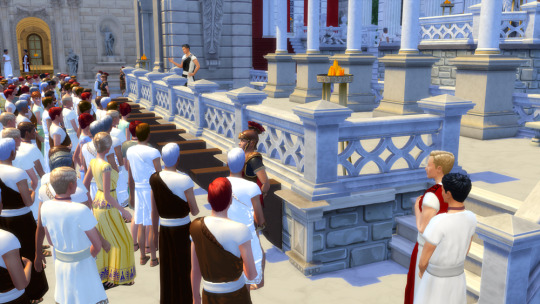
The crowd roared, and Cicero left the rostra to thunderous applause as Manilius stepped forward to call for a vote. Within a few hours, The lex Manilia passed overwhelmingly.
Thus had Cicero surmounted another great obstacle in his career. Yet now, he was hated by the boni more than ever.
BEGINNING | PREV | NEXT
#ts4 story#ts4 simblr#simblr#ts4 historical#historical simblr#ancient rome#marcus tullius cicero#serving Pompey#the lex Manilia#chapter 53#advancing the agenda#another victory over the boni
7 notes
·
View notes
Text
A few notes about Cassius, Faustus Sulla and Pompey.
1) Episode with the fight at school (Plut. Brut. 9) takes place in 77 bce (maybe late 78 is also possible): on the one hand, Sulla is already dead, on the other - Pompey is still in Rome. This means that either Pompey hasn't left to Mutina against Brutus Sr. yet, or it's the interval between his return from Mutina and leaving to Spain against Sertorius.
[I want a film about a bunch of Sullans raising Sulla’s kids. Pompey: "Why can’t I be their parent too!” Lucullus: “Because! Not in the will? I don’t know you.”]
2) Both Faustus Sulla and Cassius were with Pompey during the Eastern campaigns.
It is textually confirmed for Faustus; for Cassius it is safe to assume, because he would not be given a responsible office in Crassus's army without significant military experience, preferably in the East, which points to Pompey's campaigns (it should be mentioned that C. Cassius Longinus (cos. 73), who is thought to be the father of our Cassius, supported Lex Manilia, that gave Pompey the command [Cic. Man. 68]). Looks like later, in 55 bce, Cassius was Pompey's recommendation to Crassus.
3) So there are details that allow to suggest more or less Pompeian alignment of Cassius’s family. Besides the already mentioned, ~53-52 bce Pompey chose Q. Cassius, brother of our Cassius, as his quaestor in Spain without the lot (the same way Caesar chose Antony).
Among other things, this means that Cassius would be left out of Vettius's conspiracy even if he was in Rome at that time (which I doubt).
#lucky so lucky (cassius&faustus sulla)#gaius cassius longinus#faustus cornelius sulla#gnaeus pompeius magnus#cassii#chronowhat
6 notes
·
View notes
Text
Pompey: MiLiTaRy gENiUs first consulship - civil war pt.1 first consulship - returning from the 3rd Mithridatic war
70 BC - FIRST CONSULSHIP
🌇In 70 bc, Pompey and Crassus became consuls
Remember he was very underage and
🌇Their main feat was that they repealed basically everything Sulla did
🌇The tribunes’ powers were fully restored; criminal juries were divided between senators and wealthy non-senators; and, for the first time since Sulla, two censors—both supporters of Pompey—were elected, who purged the Senate and, in compiling the registers, at last fully implemented the Italians’ citizenship - possibly angered urban poor
🌇The system then continued to rely essentially on mos majorum and auctoritas —potent forces in the status society of the Roman Republic. The solid bases of law and power that Sulla had tried to give it had been surrendered. MAKES IT EASIER TO CORRUPT
🌇In the ‘Life of Crassus’, Plutarch wrote that the two men differed on almost every measure, and by their contentiousness rendered their consulship "barren politically and without achievement, except that Crassus made a great sacrifice in honour of Hercules and gave the people a great feast and an allowance of grain for three months”
🌇Towards the end of their consulship, when the differences between the two were increasing, a man declared that Jupiter told him, to "declare in public that you should not suffer your consuls to lay down their office until they become friends".
🌇The people called for a reconciliation. Pompey did not react, but Crassus "clasped him by the hand" and said that it was not humiliating for him to take the first step of goodwill. aw
🌇Plutarch wrote that Pompey "had determined to restore the authority of the tribunate, which Sulla had overthrown, and to court the favour of the many" and commented that, "There was nothing on which the Roman people had more frantically set their affections, or for which they had a greater yearning, than to behold that office [the tribuneate] again." Through the repeal of Sulla's measures against the plebeian tribunate Pompey gained the favour of the people.J
67 BC - MITHRADATES AND PIRATES
Pirates
🎃In 67bc, Pompey did lots of military things like how a military person does
🎃 PIRATES: A large network of pirates coordinated operations over wide areas with large fleets. According to Cassius Dio, many years of war contributed to this because many war fugitives joined them. Pirates were more difficult to catch or break up than bandits. The pirates pillaged coastal fields and towns
🎃So he was given the Lex Gabinia
🎃This was proposed by Aulus Gabinius, tribune of the Plebs.
🎃It granted Pompey extraordinary proconsular powers in any region within 50 miles of the Mediterranean Sea and was introduced to allow Pompey to deal with pirates that were patrolling the Mediterranean Sea and preventing grain from reaching Rome.
🎃 He was allowed to have 200 ships, levy as many soldiers and oarsmen as he needed and collect as much money from the tax collectors and the public treasuries as he wished. The use of treasury in the plural might suggest power to raise funds from treasures of the allied Mediterranean states as well.
🎃Such sweeping powers were not a problem because comparable extraordinary powers given to Creticus to fight piracy in Crete in 74 BC provided a precedent.
🎃 Cassius Dio claimed that Gabinius "had either been prompted by Pompey or wished in any case to do him a favour … and … He did not directly utter Pompey's name, but it was easy to see that if once the populace should hear of any such proposition, they would choose him."
🎃Plutarch described Gabinius as one of Pompey's intimates and claimed that he "drew up a law which gave him, not an admiralty, but an out-and‑out monarchy and irresponsible power over all men"
the third mithradatic war
🏮Mithradates was still a huge big huge huge problem, yes he was.
🏮 Lucullus was conducting the Third Mithridatic War (73–63 BC) against Mithridates VI the king of Pontus and Tigranes the Great, the king of Armenia. He was successful in battle; however, the war was dragging on and he opened a new front (Armenia)
🏮In Rome Lucullus was accused of protracting the war for ‘the love of power and wealth’ and of taking from royal palaces as if he had been sent, 'not to subdue the kings, but to strip them.’ Some of the soldiers were disgruntled and were incited by Clodius not to follow their commander. MUTINY
🏮Because of this, Mithradates won back some territory
🏮Pompey was sent to help, given the Lex Manilia
🏮It gave Pompey command of the forces and the areas of operation of Lucullus and in addition to this, Bithynia, which was held by Acilius Glabrio.
🏮It commissioned him to wage war on Mithridates and Tigranes.
🏮 It allowed him to retain his naval force and his dominion over the sea granted by the lex Gabinia.
🏮Therefore, Phrygia, Lycaonia, Galatia, Cappadocia, Cilicia, Upper Colchis, Pontus and Armenia as well as the forces of Lucullus were added to his command.
🏮Plutarch noted that this meant the placing of Roman supremacy entirely in the hands of one man. The optimates were unhappy about so much power being given to Pompey and saw this as the establishment of a tyranny.
🏮They agreed to oppose the law, but they were fearful of the mood of the people. Only Catulus spoke up. The law was passed.The law was supported by Julius Caesar and justified by Cicero in his extant speech Pro Lege Manilia
🏮According to Cassius Dio, while this was happening, Pompey was preparing to sail to Crete to face Metellus Creticus (see campaign against the pirates).
🏮Lucullus was incensed at the prospect of his replacement by Pompey. The outgoing commander and his replacement traded insults. Lucullus called Pompey a "vulture" who fed from the work of others.
🏮Lucullus was referring not merely to Pompey's new command against Mithridates, but also his claim to have finished the war against Spartacus
An overview from wiki about what Pomps did:
The Roman province of Bithynia was enlarged and became the province of Bithynia et Pontus (Pompey added the western part of Pontus).
Galatia was divided between Deiotarus ruling the Tolistobogii in the west, Domnilaus ruling the Tectosages in the middle, Brogitarus ruling the Trocmi in the east, and Pylaemenes ruling Paphlagonia in the north.
Capadocia was restored to Ariobarzanes (Pompey actually increased his lands).
The Roman province of Cilicia was also enlarged (Pompey added Pamphylia and several other inland areas). Cilicia kept its name.
The coastal strip from Gaza to the gulf of Issus was formed into a new Roman province. The province of Syria.
Deiotarus (the ruler of the Tolistobogii) was given an extensive kingdom east of Bithynia et Pontus; consisting of the eastern part of Pontus and Lesser Armenia.
Colchis was given to Aristarchus.
Commagene was given to Antiochus.
Osrhoene was given to Abgar.
The Amanus range was given to Tarcondimotus.
Tigranes was allowed to remain king of Armenia.
Sophene became independent of Armenia (but a client of Rome).
Gordyene became a client of Rome.
Hyrcanus was reinstated as ruler a high priest of Judaea (although much of the power in Judaea passed into the hands of Antipater).
his return from the east and cicero - 63 bc
🦀Pompey went back to Amisus. Here he found many gifts from Pharnaces and many dead bodies of the royal family, including that of Mithridates. Pompey could not look at Mithridates' body and sent it to Sinope.
🦀Before he departed for Rome Pompey paid his army, the sum distributed amounted, we are told, to 16,000 talents (384,000,000 sesterces). He then travelled in greater pomp.
🦀On his way to Italy he went to Mytilene on the island of Lesbos. He decided to build a theatre in Rome modelled on that of this city. In Rhodes he listened to the sophist philosophers and gave them money. He also gave rewards to philosophers in Athens and gave the city money towards its restoration (it had been damaged by Sulla during the First Mithridatic War).
🦀In Rome there were rumours that Pompey would march his army against the city and establish a monarchy. Crassus secretly left with his children and money. Plutarch thought that it was more likely he did this because he wanted to give credibility to the rumours rather than through genuine fear.
🦀However, Pompey disbanded his army when he landed in Italy. He was cheered by the inhabitants of the cities he passed on his way to Rome and many people joined him. Plutarch remarked that he arrived in Rome with such a large crowd that he would not have needed an army for a revolution.
🦀In the Senate Pompey was probably equally admired and feared. On the streets he was as popular as ever. His eastern victories earned him his third triumph, which he celebrated on his 45th birthday in 61 BC, seven months after his return to Italy.
🦀Plutarch wrote that it surpassed all previous triumphs. It took place over an unprecedented two days. Much of what had been prepared would not find a place and would have been enough for another procession.
🦀Inscriptions carried in front of the procession indicated the nations he defeated (the Kingdom of Pontus, Armenia, Cappadocia, Paphlagonia, Media, Colchis, Caucasian Iberia, Caucasian Albania, Syria, Cilicia, Mesopotamia, Phoenicia, Judaea and Nabataea) and claimed that 900 cities, 1,000 strongholds. 800 pirate ships and 1,000 pirates were captured and that 39 cities were founded.
🦀Some also claimed that his conquests were adding 85 million drachmas to the 30 million drachmas of the public revenues from taxes and that he brought 20,000 drachmas in silver and gold.
🦀The captives led in the triumph were the leaders of the pirates, the son of Tigranes the Great with his wife and daughter, a wife of Tigranes the Great, a sister and five children of Mithridates VI, Aristobulus II, the king of the Jews, and hostages from the Caucasian Albanians, the Caucasian Iberians and the king of Commagene.
🦀The tribune Rullus wanted to make a land bill to give the poor land - yet Cicero spoke out agaisnt it.
🦀This is most likely because Cicero knew it would make Pompey trying to give his veterans land harder.
🦀Cicero exaggerated the power which the land commission would be given by the bill. He described the commission as "... ten Kings of the treasury, of the revenues, of all provinces, of the whole Republic, of the kingdoms allied with us, the free nations confederate with us - in fact, ten Lords of the world are to be set up under the pretence and name of an agrarian law."
0 notes